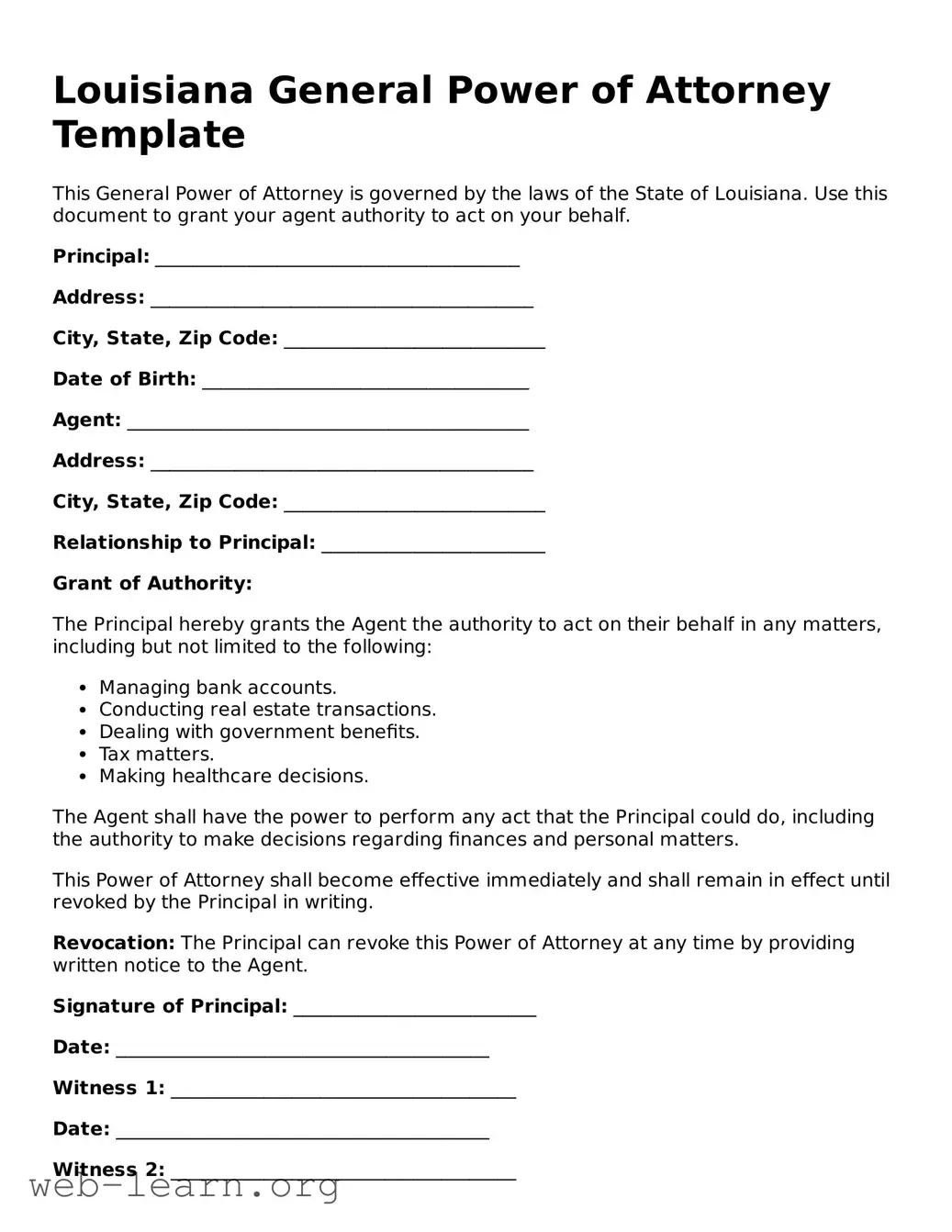Louisiana General Power of Attorney Template
This General Power of Attorney is governed by the laws of the State of Louisiana. Use this document to grant your agent authority to act on your behalf.
Principal: _______________________________________
Address: _________________________________________
City, State, Zip Code: ____________________________
Date of Birth: ___________________________________
Agent: ___________________________________________
Address: _________________________________________
City, State, Zip Code: ____________________________
Relationship to Principal: ________________________
Grant of Authority:
The Principal hereby grants the Agent the authority to act on their behalf in any matters, including but not limited to the following:
- Managing bank accounts.
- Conducting real estate transactions.
- Dealing with government benefits.
- Tax matters.
- Making healthcare decisions.
The Agent shall have the power to perform any act that the Principal could do, including the authority to make decisions regarding finances and personal matters.
This Power of Attorney shall become effective immediately and shall remain in effect until revoked by the Principal in writing.
Revocation: The Principal can revoke this Power of Attorney at any time by providing written notice to the Agent.
Signature of Principal: __________________________
Date: ________________________________________
Witness 1: _____________________________________
Date: ________________________________________
Witness 2: _____________________________________
Date: ________________________________________
Notary Public: _________________________________
Date: ________________________________________
